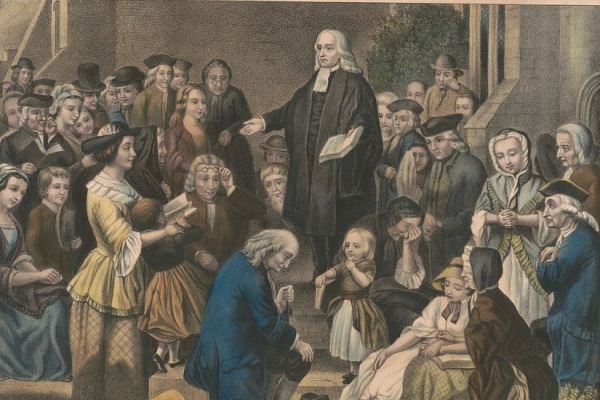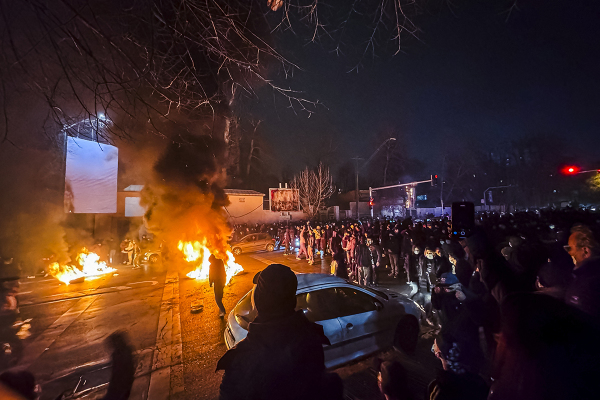What would Sojourner Truth do?

“This is the most important election in our life time,” said the message on my phone. “Our democracy is at stake. We need your help to get out the vote.” I could ignore the message, or call back and volunteer. What would Sojourner Truth do?
Sojourner Truth worked to get out the vote in 1872. At stake was Reconstruction, which sought to rebuild the South on the basis of civil rights and free labor rather than slavery. As Truth put it, “slavery is dead, but the spirit of slavery lives on.” The freed people would quickly lose their freedoms if the North abandoned them.
Born into slavery in New York in 1797, Truth freed herself and later became a preacher. Truth’s sharp wit and powerful singing got the attention of abolitionists, who invited her to speak on her experiences as a northern slave. Truth won a reputation as a bold speaker and fearless truth teller. At the same time, she became a pioneer of women’s rights.
When the Civil War came, Truth recruited black soldiers in Michigan. She worked in the Black refugee camps in Washington, D.C. and met Lincoln in the White House. In defiance of Jim Crow, she rode segregated streetcars. When a conductor threw her into the street, dislocating her shoulder, she sued for damages and won.
Truth knew that freedoms once gained could be lost. After the Civil War, southern Blacks were the target of “the worst outbreak of domestic terrorism in American history,” writes historian Ron Chernow. White supremacists murdered thousands of black people to stop them from using their new rights. When legislation failed to curb the violence, President Ulysses Grant sent federal troops to South Carolina to crush the KKK there. “By 1872, under Grant's leadership, the Ku Klux Klan had been smashed in the South.” Grant was a proven friend of African Americans, because Grant believed in democracy.
Opposing Grant in the election of 1872 was Horace Greeley, a New York newspaper editor and opinion maker who ran for the new “Liberal Republican” party. Greeley wanted to resume normal relations between the North and the South by ending Reconstruction. This would have meant abandoning the newly freed people to face the wrath of white supremacists. “Normal” was the last thing Black people wanted. They wanted change.
Sojourner Truth said Greely was a traitor to all the North had fought for. Legally, she could not vote, but she could get others to vote. “I go in for agitating,” she used to say. So the seventy-five year old hit the campaign trail to raise the black vote in her adopted state of Michigan. Her network of friends and allies set up her meetings, and the press gave her good coverage. The “safety of our race,” said Truth, depends on keeping the Government with our proven friends, according to the Chicago Inter-Ocean. “Wherever [Truth] has been,” she has found Black people “all as one for President Grant,” said New York Times. And the National Republican of Washington D.C. said that Truth’s influence among Black people exceeded that of Frederick Douglass.
Douglass was campaigning for Grant too. He spoke of the KKK murdering men and women at midnight — in cruelty that “hardly seemed possible in a civilized land.” But thanks to Grant, “the scourging and slaughtering of our people have so far ceased.” Douglass hailed Grant as the “protector of my race.”
On election day, Douglass voted for Grant. Truth went to the polling place in Battle Creek but was turned away.
Grant won the election. The next election in 1876, however, was a debacle. Too close to call, the results were disputed and a constitutional crisis ensued. After several months of bitter contention, a deal was struck: Republicans agreed to abandon Reconstruction if their candidate, Rutherford B. Hayes, became the next President. The South descended into apartheid and generations passed before the Civil Rights Movement arose to push us closer to a true democracy.
Many believe that today our country is again facing a reckoning. Truth would be pleased that women are not only voting but running for office, and that a woman and mother is at the center of controversy for an appointment to the Supreme Court. Even so, she would not be pleased with the current nadir of race relations, and the huge gap in wealth between Blacks and whites. We can do better and we must do better. What would Sojourner Truth do? What will you do?
Nancy Koester is the author of Harriet Beecher Stowe: a Spiritual Life and an affiliated scholar at the Faith and Liberty Discovery Center in Philadelphia, Pennsylvania.





















